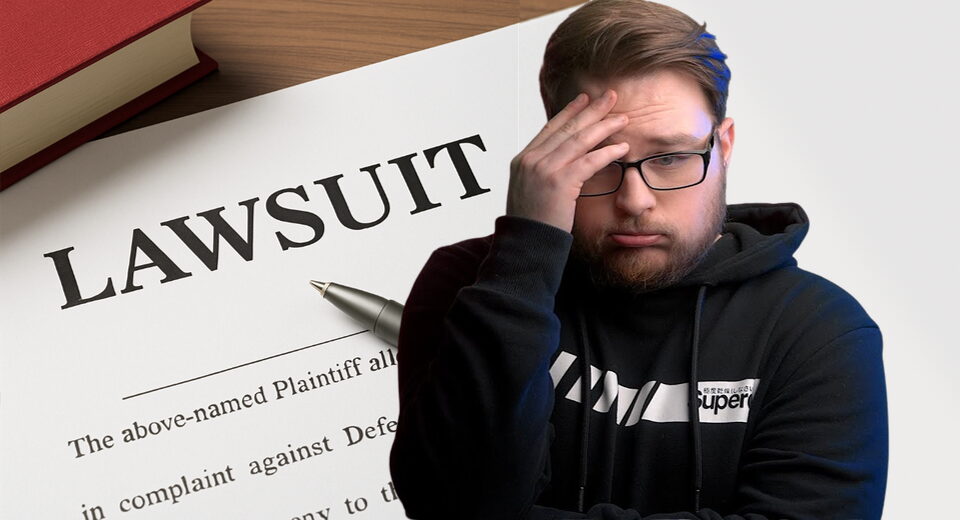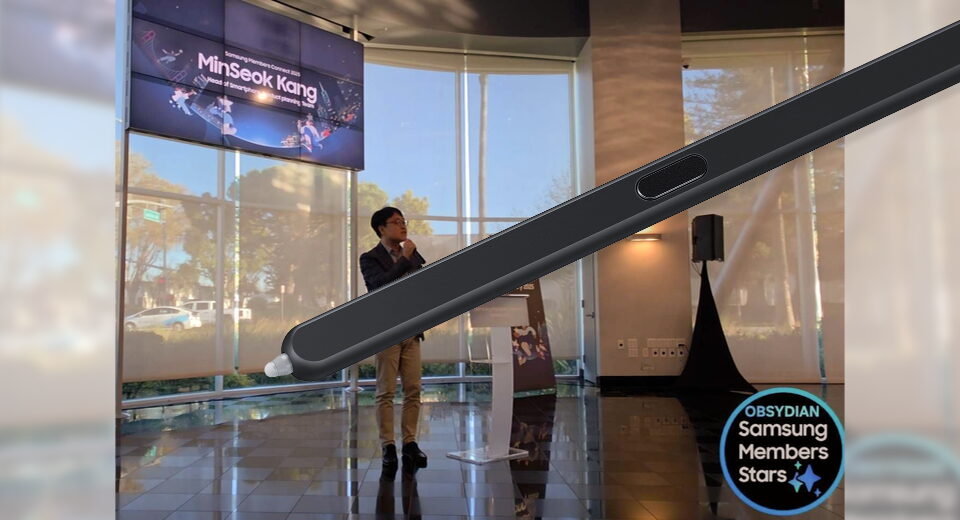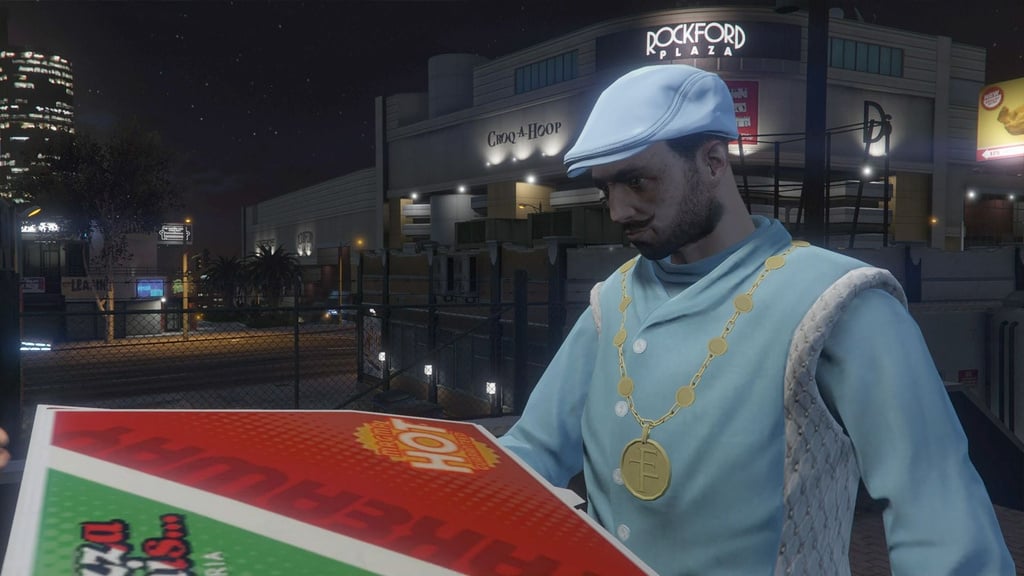Rats, mould and dangerous overcrowding - inside illegal house-shares hiding in plain sight
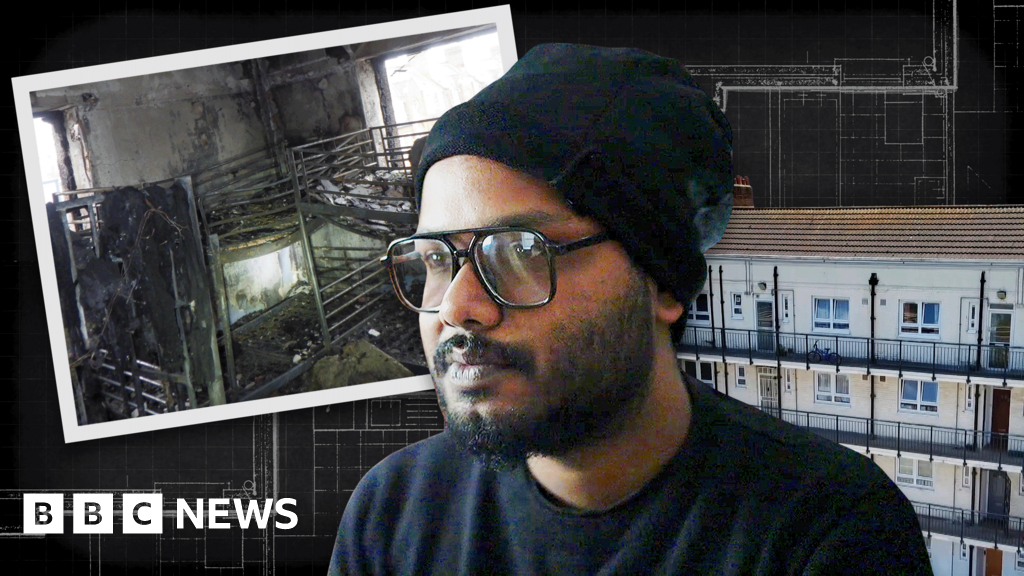
Rats, mould and dangerous overcrowding - inside illegal house-shares hiding in plain sight
Tarah Welsh and Zack AdesinaBBC News
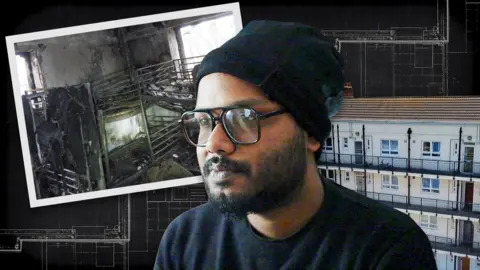
In the middle of the night, says Maria, groups of people can sometimes be seen moving into houses in her neighbourhood, far more than would seem to fit comfortably in the Victorian terraced homes.
Each of these houses has 10 to 15 people living inside, she estimates. Maria, an architect, suspects they are being illegally rented. "They're everywhere," she says.
Maria contacted Your Voice, Your BBC News after spending years complaining about these homes to her local authority in east London, Newham Council. We began investigating - and found a widespread black-market rental sector where people are forced to live in unsafe spaces.
Photos, videos and testimony from the people living in several properties like these showed unsanitary and overcrowded homes, with adults sleeping on bare mattresses in bunk beds, contending with black mould, rats and, in some cases, conditions that proved to be deadly.
Laws across the UK say large house-shares - officially known as houses in multiple occupation (HMOs) - must have a licence, so local councils can ensure each property is suitable for the number of occupants and meets gas, electrical and fire safety requirements.
But evidence in three London house-share hotspots we examined suggests that in some places there are more unlicensed, black-market HMOs than there are legal ones. One London borough told us it has 3,000 licensed HMOs, but estimates there are two or three times that number in reality.
In shop windows in east London, we noticed many ads for properties that did not appear to conform to licensing laws, often offering a "bedspace" in shared rooms. We also found adverts online that appeared to show mould or dirt in the shared rooms.
To investigate, BBC reporter Gopal Virdee responded to some of these adverts and viewed the rooms, filming with a hidden camera.
In one property in Waltham Forest, where there was a shared bedroom advertised at £330 a month, he was met by about 10 young men who all appeared to live there. The room on offer was shared between three people, another was shared between four - and on some of the beds, there was no bedding or even mattresses.
One of the men told us they were subletting and admitted there was no HMO licence - as the local authority register confirmed.
A company representing the property owner later told us that the tenancy agreement "expressly forbids" subletting and multiple occupancy and that the property had never been let or advertised for those purposes. It said it had taken prompt action when it learned of the contract breach.
The man who showed our reporter around later told us he had "no involvement whatsoever in the management, ownership or letting of this property". Waltham Forest Council said it would take action.
Overcrowded conditions such as these can be fatal. Nazmush Shahadat escaped a deadly fire in 2023 at an HMO in Shadwell, east London. He had moved in as a last resort, after coming to the UK to study law and finding that the housing he had been promised had fallen through.
The "stench" hit him when he first arrived, Nazmush says, "like an old gym with the men's sweat". He says he was bitten by bedbugs and could see mould across the ceiling from his top bunk.
On the night of the fire, there were 18 people crammed into the two-bedroom flat.
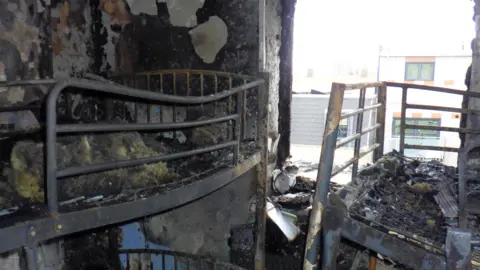 Tower Hamlets Council
Tower Hamlets Council
Many of Nazmush's flatmates worked as food-delivery riders, and the fire started because of a faulty e-bike battery charging under a bunk-bed.
When the tenants' attempts to put the blaze out failed, they fled the smoke-filled flat. Nazmush says they thought everyone had got out - until the emergency services carried out a man on a stretcher. "That's when it hit us straight away, that body - it could be any one of us," he says.
Mizanur Rahman had only lived in the flat a few days. He died later in hospital aged 41, leaving behind a wife and two children in Bangladesh. Earlier this year, the landlords - husband and wife Aminur Rahman and Sofina Begum - were fined £90,000 for multiple housing offences, including cramming more people into the property than three people the licence permitted.
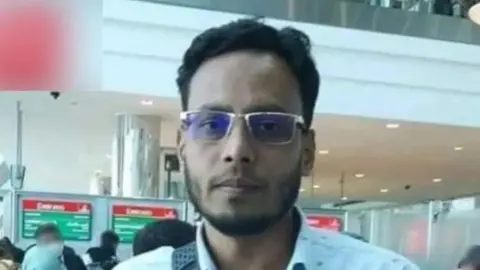
Because such overcrowded properties are undeclared, the true number of unlicensed HMOs across the country is unknown. But an experimental data project to try to detect them has been developed by Ben Yarrow, who runs the landlord and letting agency review website, Marks Out Of Tenancy.
It flags potential unlicensed HMOs by searching through a range of financial data sources to identify properties associated with large numbers of people who have different surnames.
It has some limitations - it cannot find people relying on cash with no formal paperwork, and in some cases households with big families can be wrongly flagged.
We asked Mr Yarrow to scan specific postcodes in three boroughs which we knew were HMO hotspots.
In part of Newham, where there are only 75 licensed properties, he found more than 700 possible HMOs.
In part of Tower Hamlets, he found nearly 500 suspected HMOs. The council has publicly listed only 50 HMO licences here, although it said more properties were licensed.
And around Southwark's Old Kent Road, Mr Yarrow found more than 300 possible HMOs, although only 232 were licensed. Southwark Council told us it actively works to identify suspect properties and protect tenants. Tower Hamlets Council said it thought the data was incorrect and that it actively investigates reports of unlicensed properties.
Newham Council said it uses advanced systems to identify unlicensed HMOs and follows up all resident complaints, but it said enforcement is time-consuming because tenants are often "among the most vulnerable members of society". It said it had investigated 2,307 alleged failures to licence properties between January 2023 and March this year.
Many council enforcement teams appear to be overstretched. According to responses to Freedom of Information requests, only about a third of complaints raised by renters in England between 2021 and 2023 were followed by a local authority inspection.
The government's Renters' Rights Bill, currently passing through Parliament, is due to create a national database of private rented properties in England, which will help councils "clamp down on unlicensed properties", London's deputy mayor for housing Tom Copley told the BBC.
The growth of unlicensed HMOs means it is not only single renters caught up in them - sometimes entire families are crammed into single rooms in shared houses.
Marius Judzinskas, who is originally from Lithuania, moved into a shared house in Greenwich, south-east London. Shortly afterwards, his wife joined him. A council officer later said in a report that the property should have been licensed as an HMO.

The couple spent nine years there, and went on to have a family in their small room, squeezing in two cots and all their possessions. "People like me, we don't have a choice," he says.
The family had to wait to use the bathroom or the cooker, and conditions were unhygienic, he says. They captured video of rats in the kitchen.
Relationships with the landlord and other tenants broke down and Marius was asked to leave, he says. The family returned home one day and found the locks had been changed, he says. They tried to climb in through an open window so they could put their nine-month old baby in the room to sleep, but the police were called. They were evicted.
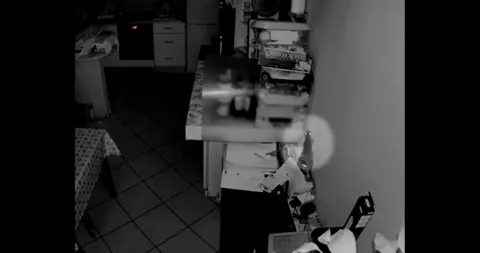
Marius is now taking legal action against the people who managed his former home, through a rent repayment order, to try to claw back some of what he paid. Renters in homes where landlords have broken the law, including by failing to register an HMO, can claim up to a year's rent back.
Eviction is a particular risk with unlicensed HMOs, says Roz Spencer from Safer Renting, which helps tenants in disputes with landlords.
The issue of unlicensed HMOs is growing, she says. "We are being referred more people and I believe the problem is spreading and the non-compliance issue is endemic."
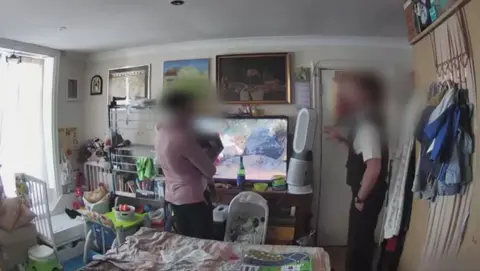
Chris Norris, chief policy officer for the National Residential Landlords Association, says most landlords operate within the law and only have one or two properties that are well looked after. But he says: "There is this view or perception that landlords can get away with it because, frankly, some landlords do."
Local authorities do not have the capacity to enforce the licensing regime, he says, but it is only a "tiny minority" of landlords responsible for these bad practices.
The government says the Renters' Rights Bill will address the situation, "empowering" tenants to act without the threat of retaliation. It says it expects local authorities to "clamp down on rogue landlords" and "HMOs must be safe, well-maintained, and properly managed".
But in the meantime, many thousands of people are likely to be stuck in potentially dangerous homes.
What's Your Reaction?
 Like
0
Like
0
 Dislike
0
Dislike
0
 Love
0
Love
0
 Funny
0
Funny
0
 Angry
0
Angry
0
 Sad
0
Sad
0
 Wow
0
Wow
0















